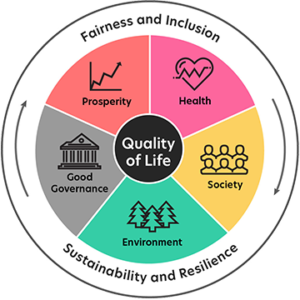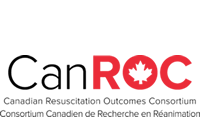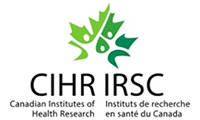Confused about some of the medical terminology EpiDOSE uses? You found the right place. Our glossary was created to help patients and families better understand our research.
Glossary
An automatic external defibrillator, most commonly known as an AED, is used to help those experiencing cardiac arrest. It works by analyzing the heart rhythm, and if necessary, delivers an electrical shock (or defibrillation) to help the heart re-establish and effective and safe rhythm.
If you are interested in learning more about AEDs and CPR, check out our Resources page.
Brain death is when all functions of the brain are lost and cannot be reversed. This involves unconsciousness and the loss of brainstem reflexes, such as breathing.
A cardiac arrest occurs suddenly and often without warning. There are numerous causes of sudden cardiac arrest which include abnormal heart rhythms and blockages in the arteries that supply blood to the heart. The first line of treatment of cardiac arrest is cardiopulmonary resuscitation (CPR), which is often combined with other advanced treatments such as electrical shock by defibrillation, and medications such as epinephrine. If a cardiac arrest is not treated immediately, it can lead to death within minutes.
For more information visit here.
CPR is an emergency lifesaving technique performed when the heart stops beating.
For the general public or bystanders who witness an adult suddenly collapse: Hands-Only CPR is CPR without mouth-to-mouth breaths. It is recommended for use by people who see a teen or adult suddenly collapse in an out-of-hospital setting (such as at home, at work, or in a park). It consists of two easy steps:
- Call 9-1-1 (or send someone to do that)
- Push hard and fast in the center of the chest
CanROC or the Canadian Resuscitation Outcomes Consortium is an organization composed of Canadian resuscitation researchers in collaboration with Emergency Medical Services (EMS) partner agencies from across Canada working towards increasing survival from sudden cardiac arrest and life threatening trauma.
The Canadian Institute of Health Research is run by the federal government to provide funding for health research.
When the heart is not beating properly, it may need to be shocked to start beating again. This process is known as defibrillation.
Emergency Health Services (EMS) includes the people and services provided in emergency care before a patient reaches the hospital. EMS services include ambulance services, and hospital programs that support paramedics and ambulance services.
If initial treatment using CPR and defibrillation is unsuccessful, some people are given a medication called epinephrine (also known as adrenaline). Epinephrine works by increasing blood supply to the heart, which makes it more likely that the heart will start beating again. However, there are side effects to this type of treatment, including long-term damage to the heart and brain.
A heart attack occurs when a blocked artery prevents oxygen-rich blood from reaching a section of the heart. If the blocked artery is not reopened quickly, the part of the heart normally nourished by that artery begins to die. The longer a person goes without treatment, the greater the damage.
Symptoms of a heart attack may be immediate and intense. More often, though, symptoms start slowly and persist for hours, days, or weeks before a heart attack. Unlike sudden cardiac arrest, the heart usually does not stop beating during a heart attack. The heart attack symptoms in women can be different than men.
For more information visit health.org
The injection site is the spot where a medication is given to a patient. For EpiDOSE, this will most often be intravenously or IV (into the vein) injectedepinephrine.
Intravenous infusion is the administration of fluids or medication directly into a vein. Epinephrine is administered through IV.
Inflammation is one of the body’s defense mechanisms when responding to something that irritates it. This can include germs, external injuries, or chemicals. Often inflammation will cause redness, heat, swelling, pain, and sometimes loss of function.
An arrhythmia, or irregular heart rhythm, is a problem where the heart is either beating at an incorrect rate (too fast or too slow) or at an irregular rhythm. Arrhythmias happen if the electrical system that controls the heart is not working properly.
The neurological status of a patient looks at the condition of that person’s brain. This can be assessed by testing movement, reflexes, and more. For more information visit here.
Out of hospital cardiac arrest is the same as cardiac arrest, but occurs outside of a hospital setting.
Quality of Life (QoL) refers to the wealth and comfort of individuals, communities, and society based on both material and non-material factors that are important to people’s lives, such as health and social connections.

A randomized controlled trial (RCT) is a type of experiment that randomly allocates participants to an experimental group (those who receive a new treatment) or a control group (those who receive the current standard treatment or a placebo). Information from the control group allows the researchers to see whether the new treatment is more or less effective than the current standard treatment.
Return of spontaneous circulation, also known as ROSC, means that the heart has returned to a normal heart rhythm. Signs of ROSC include breathing, coughing or movement and a palpable pulse. However, not all patients who achieve ROSC survive to hospital discharge.
Cardiac arrest happens suddenly. Usually, there are no warning signs, however, some warning signs can include:
- Sudden collapse
- Unresponsive to touch or sound
- Not breathing or is making gasping sounds
Survival to Hospital Discharge describes the outcomes of patients who have survived to be discharged from the hospital and can be transferred to various facilities after being discharged. This can include home nursing or other care centers.
Survival following hospital discharge describes the outcomes of patients after they have been discharged. Some factors that may be examined patient’s health, quality of life, and neurological status after being discharged from the hospital.
Termination of resuscitation means that the efforts to resuscitate (bring a patient back from unconsciousness) are stopped.
Ventricular fibrillation is a heart rhythm problem that occurs when the heart beats with rapid, erratic electrical impulses. This causes pumping chambers in your heart (the ventricles) to quiver uselessly, instead of pumping blood. Sometimes triggered by a heart attack, ventricular fibrillation causes your blood pressure to plummet, cutting off blood supply to your vital organs.
Ventricular tachycardia (VT) is a type of abnormal heart rhythm, or arrhythmia. It occurs when the lower chamber of the heart beats too fast to pump well and the body doesn’t receive enough oxygenated blood.
In most forms of research, participants need to give consent before they participate in the trial. However, in some forms of emergency research, it is not possible for participants to give consent. As a result, the need for patients to give consent can be waived in certain situations.


